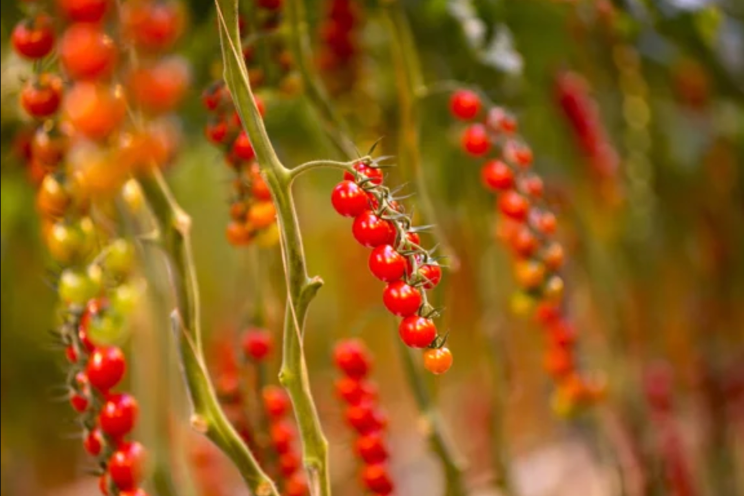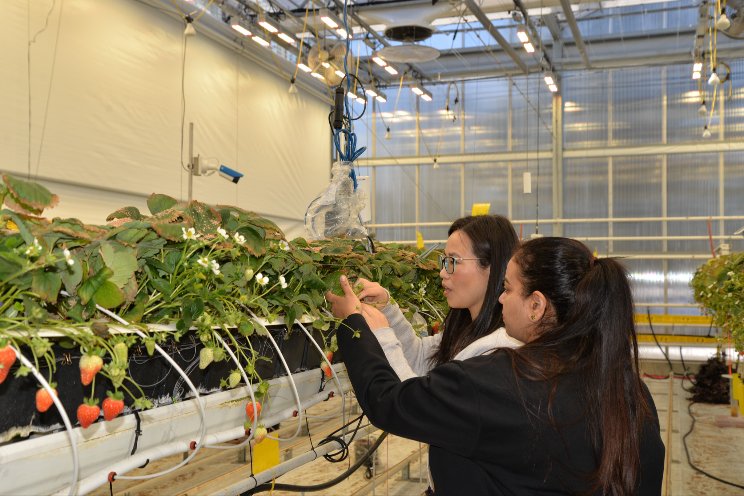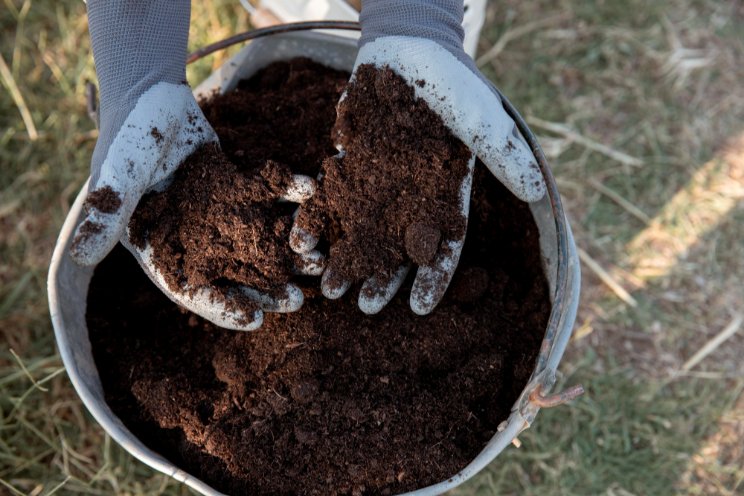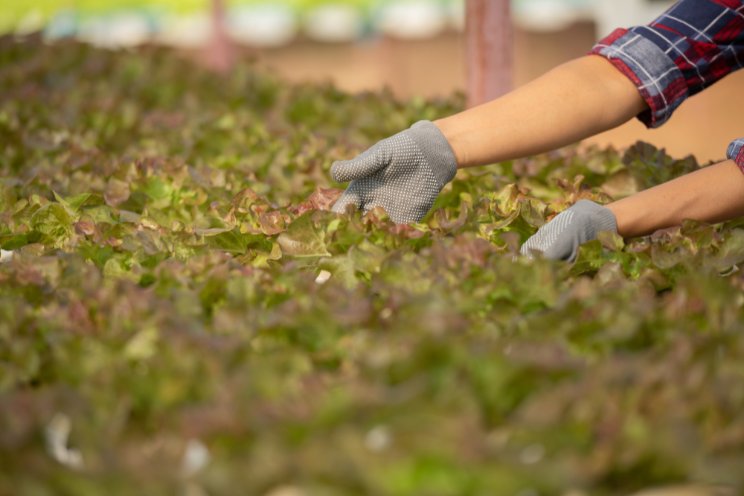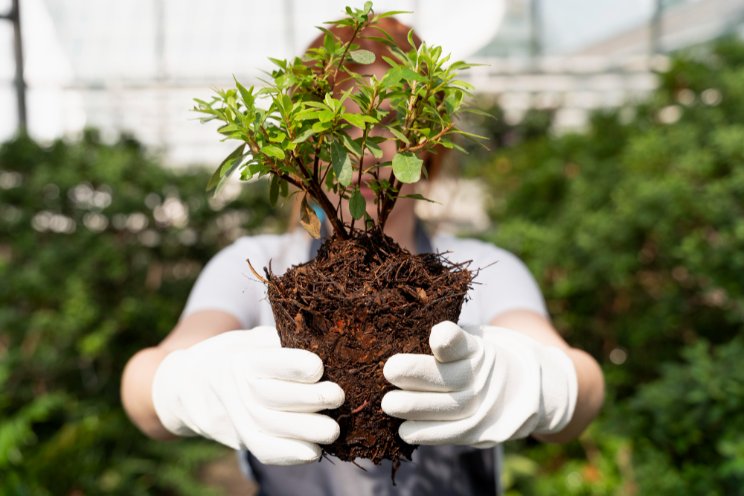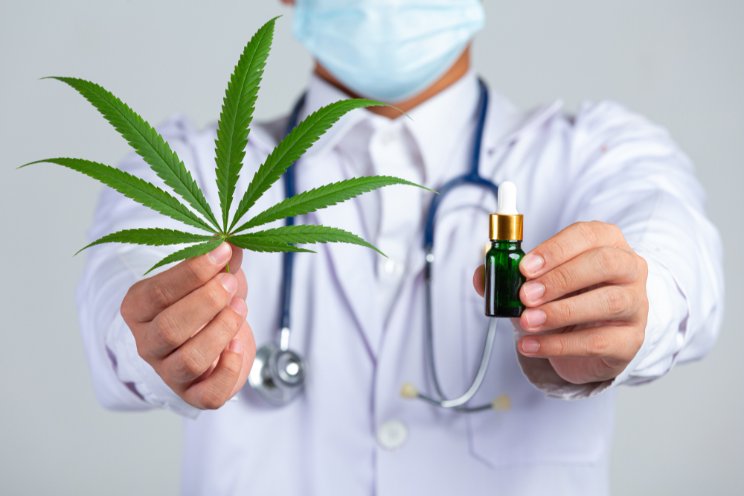COVID-19's shockwaves still building
Added on 19 March 2020


Photo by Captionery on Unsplash
Many of our readers have asked about the potential ramifications to controlled-environment growers based on what we're hearing and observing at Greenhouse Grower. We will be devoting significant resources to helping you sort through all the noise and confusion in the coming days, week, and months.
I thought I would share my take on what is going on now in the industry and what growers might need to prepare for in the future. I'm by no means an expert and would love to hear your thoughts on what our industry should be prepared for with COVID-19 and how we can be proactive to handle whatever comes our way.
Stockpiling, Social Distancing Impacting Consumer Spending
The virus has already impacted consumer spending, as Americans have rushed to grocery stores to stock up on everything from hand sanitizer to bread and toilet paper. There's a big emphasis on purchasing unperishable items in the unfortunate scenario that one can't get to the grocery store. That means canned, boxed, and bottled goods, not necessarily fresh fruits and vegetables, despite their importance for boosting the immune system.
At the same time, social distancing means people are eating out less, which suggests restaurants may not require the same supply of fresh fruits and vegetables as they have in the past. Depending on how long events continue to cancel and people stay home, this could mean a decrease in fresh-market sales that impact controlled-environment vegetable growers. On the plus side, take-out and online-ordering are still good options for those who don't want to cook.
Food safety questions, driven by the COVID-19 outbreak, are also beginning to pop up about those who produce, handle, and cook food for others that could potentially carry the virus. Additionally, consumers are wondering about the vulnerability to COVID-19 contamination of open displays of fresh fruits and vegetables and salad bars in grocery stores and farm markets. Education here is critical.
A recent post by Purdue University stated that current research indicates the virus is not foodborne or food-transmitted. Food Science Extension Specialist Amanda Deering said in the post that from all indications, the virus that causes COVID-19 appears to be transmitted just like other viruses, which is good news because good sanitation practices like washing fruits and vegetables and hands before eating should help reduce the risk of contracting COVID-19. Purdue's Food Safety Educator, Scott Monroe, added in the post that many produce growers already incorporate good agricultural practices that reduce the risk of contamination by a human pathogen.
One piece of consumer spending still in question is what people will spend on plants, gardening, and landscaping as the weather warms up in many parts of the U.S. Two scenarios could likely occur. One, they won't spend because they choose to stay home and out of public areas, as well as save their money for emergencies. Two, they might spend more because they are stuck at home and because gardening passes the time and helps relieve stress. One good piece of news is consumers may have a bit more disposable income if fuel prices continue to go down; however, whether they spend it on plants and related hardgoods and services remains to be seen. Depending on how long this crisis lasts, retailers may have to look at alternative ways to bring in income, and it will be essential that they prepare now to get up and running again quickly when it's back to business as usual.
Controlled-Environment Growing Not Conducive to Work-At-Home
As far as controlled-environment greenhouse operations in general, COVID-19's impacts could be felt in more ways than just the loss of plant sales. Taking care of plants in the greenhouse is not something that can be easily done from home, and if most of your labor force is out sick or must stay separated, or are ordered to shelter at home, production becomes difficult. Thinking about the whole scenario makes one contemplate the importance of AI technology and other future innovations for running several greenhouses from one location.
And what happens if employees blame their company for their illness, or what about the financial losses companies may realize if there is not enough labor to get their products out of the greenhouse?
The insurance situation for scenarios like this will be tricky. Industry experts suggest following Centers for Disease Control and Prevention (CDC) guidelines, and if you think you have an insurance claim related to COVID-19, report it to your insurance carrier for their review.
We're already seeing one disturbance with H-2A and H-2B worker programs, although the full impact on available labor supply remains unclear. The U.S. Embassy and Consulates in Mexico announced yesterday that in response the COVID-19 pandemic it will suspend routine immigration and non-immigration visa services starting March 18, 2020 until further notice.
"We have been in touch with USDA Secretary of Agriculture Sonny Perdue's s staff pressing on the essential need for H-2 workers to be processed in a safe and orderly fashion. The work they perform here is critical and in the national interest," says Craig Regelbrugge, Senior Vice President, Industry Advocacy and Research for AmericanHort.
The Consulate General in Monterrey stated it intends to continue H-2 processing, albeit with additional safeguards. Returning workers eligible for an 'interview waiver' will be best positioned to move through this process in a timely fashion, according to Regelbrugge. However, the industry needs to take the position that we need all H-2 workers to be treated as essential and expedited for emergency processing.
If the consulate draws a bright line between returning workers and new ones, many employers and workers will be hurt, Regelbrugge says.
There's also the possibility that this whole issue could be further complicated by individual countries closing their borders or imposing other restrictions that inhibit H-2 workers from traveling.
Supply Chain Disruptions a Given; Impact Yet to Be Seen
Economist Charlie Hall, a professor at Texas A&M University, terms the COVID-19 outbreak as one of three "exogenous shocks that will likely lead to an economic downturn" in addition to the current oil price war and tariff-related trade policies. Some of the repercussions for businesses could be increased labor-related costs, but also possibly expanded unemployment insurance and governmental assistance with the extra sick leave burden. Hopefully, these added costs will be offset through various fiscal policy measures by Congress."
Hall says some input prices may increase because of the decimation of manufacturing and various supply chain disruptions throughout the world. There also may be less investment and expansion going on in hard-hit sectors service sectors like the hotel, airline, and restaurant industries. And, while banks may tighten up their standards for cash and credit, which may be harder to come by in the next year, Hall says growers may see some good opportunities for investment and expansion projects because of the extremely low interest rates. .
The impact on manufacturing internationally brings up concerns for controlled-environment growers about supply chain disruptions. Greenhouse Grower checked with crop protection manufacturers to see what they had to say. Most companies reported there has not been a huge impact so far and current inventories seem sufficient for the spring season and that they feel prepared or are preparing to meet future needs.
Several companies do expect there will be some delays in importing raw materials for some products, so they are closely monitoring the situation and communicating regularly with their customers.
While he cannot speak to the availability of product by other manufacturers, Mark Brotherton, Portfolio Leader at SePRO, says his company is prepared to meet its customers' needs. He says he has observed that many of the popular products are being purchased a little earlier than normal, which could be due to need or a bit of stockpiling.
What can you do in coming days to ensure you have the crop protection products you need to keep their plants healthy? Accurately access your needs and communicate them clearly with your crop protection supplier.
"We want to be sure our customers have the products they need, but that they aren't stockpiling an overabundance and end up with sheds and storage rooms full of unused products," says Sarah Moothart, Sales and Marketing Coordinator for Fine Americas. "Also, giving plenty of notice for upcoming needs is very helpful. We need to monitor the amount of product going out, to be sure we can cover everyone in these unknown times. Providing plenty of "planning/shipping time" is very helpful for our planning.
Other Supply Chain Disruptions
It's possible controlled-environment growers could see supply chain disruptions for other products sourced from China, such as heating, ventilation, and cooling (HVAC) products and low heat-emitting LED bulbs. All these products, in turn, impact energy consumption.
People are not the only ones affected by travel disruptions. Plants may be, as well.
"We have not seen any disruptions yet for young cuttings coming from overseas suppliers," says Joe Cimino, Head of Ornamental and Business Groups at Sakata Seed America. "But we have received communication from the airlines about possible route cancellations and route reductions that could potentially reduce the lift capacity for freight. However, we don't anticipate any adverse delays in the supply chain at this time."
What About the Cannabis Industry?
Vape producers are already worried about possible supply disruptions for China-sourced components of vape pens and other packaging materials. And, as more people quarantine, less people could be visiting dispensaries to buy cannabis products.
With some cannabis producers still looking for investor-partners, the instability in financial markets right now and the resulting downturn in investments may not be of much help. Trade shows play a big role in the cannabis industry, providing an avenue for suppliers to match up with investors. Like California Spring Trials, with the recent rash of event cancellations, some cannabis companies will be hunting for other ways to showcase their products.
None of these scenarios are pleasant, but there is one thing I am sure of after years of covering news in the controlled-environment greenhouse industry. Growers, suppliers, and others are a resilient bunch, and they will weather this storm like they have many others and come out the stronger for it. If ever there was a time for controlled-environment growers to work together for the good of the industry, this is the time.
Source: Greenhouse Grower
Photo by Portuguese Gravity on Unsplash
Source: Greenhouse Grower
More news
